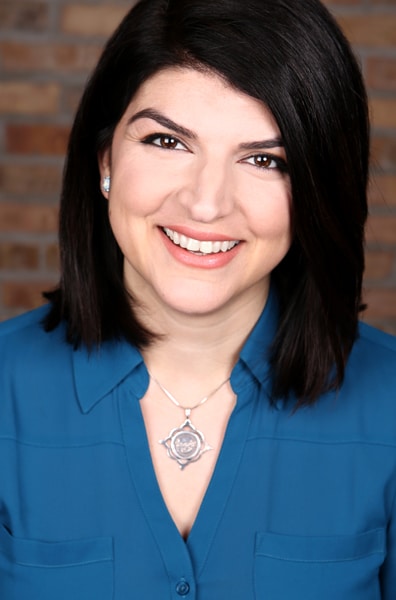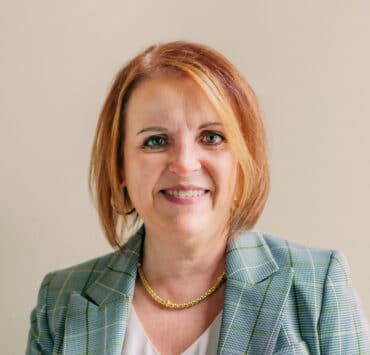“We find that in the middle of difficult situations, you don’t have the resources to tell yourself what you need—you’re kind of on autopilot,” says Dr. Saloumeh Bozorgzadeh, president of the Sufi Psychology Association and founder of Caring for Our Caregivers.
The crisis Bozorgzadeh is describing is the mental and emotional toll put on healthcare workers during the COVID-19 pandemic. As a clinical psychologist, she heard firsthand about the pain, fear, and depression that her clients working in the healthcare field were facing.
One client, a nurse working with COVID patients, told Bozorgzadeh that the anxiety she was facing about catching the disease and passing it to her family was so extreme that she would go so far as to isolate herself from other people completely. “This was a display of an incredible level of stress for someone to be under,” Bozorgzadeh says. “This is burnout.”

President of the Sufi Psychology Association and Founder of Caring for Our CaregiversPhoto by Maia Rosenfeld
Burnout. It’s the culmination of all these feelings of stress and anxiety healthcare workers faced even before they were required to dress in protective equipment and see patients suffering from incredible levels of sickness day after day.
“My clients were telling me that if they had breaks, they were sitting in the break room and everyone was like a zombie, just staring off in shock,” Bozorgzadeh says. This comment sparked an idea, which would later turn into a nationwide initiative.
As a psychologist working with many clients in healthcare, Bozorgzadeh says, “Healthcare workers are really used to being the heroes and putting other’s needs before their own. A lot of times, they don’t take a lot of time for themselves, and they’re so used to that, that they don’t even really know how to.”
Knowing that self-care is not often second nature to healthcare workers, Bozorgzadeh launched Caring for Caregivers in April 2020, which would help give this population respite and emotional healing by meeting individuals like nurses, doctors, techs, and hospital staff where they already were: in the hospital breakroom.
“Prior to the pandemic, when we were doing wellness programs for hospitals, one of the challenges that has always been present with this population is that their schedule is focused on their patients,” Bozorgzadeh says. “The people that do come to workshops might get paged, and part of them is distracted.”
The Sufi Psychology Organization found that, while organizations were providing support through apps and online support groups, individuals working in healthcare often asserted that they didn’t want to attend or open an app once they’ve left the hospital.
“It’s not like other jobs where you can have a big meeting that everyone attends, and you can do a whole workshop for them,” Bozorgzadeh explains. “We knew we needed something they can use on their own time.”
The resource provided through the Caring for Our Caregivers initiative were electronic devices preloaded with videos from its sister organization, an app called Tamarkoz, which provides users with guided meditations using the Tamarkoz practice—a form of Sufi meditation that enables individuals with the ability to connect with themselves through meditation and concentration.
“I use it both with healthcare workers and oncology patients,” Bozorgzadeh says. “The research that had been done on this form of meditation showed that people who were regularly practicing would see an increase in positive emotions, even in stressful times.”
“We find that in the middle of difficult situations, you don’t have the resources to tell yourself what you need—you’re kind of on autopilot.”
Videos from the Tamarkoz app, ranging three to thirty minutes, were donated to the Caring for Our Caregivers cause and encompassed different components of meditation, including mindfulness, breathing exercises, movement practices, visualizations, and guided imagery. And to avoid potentially dangerous Wi-Fi interference at the hospital, each tablet is Wi-Fi disabled.
“With this practice, we were able to have multiple forms of stress relief in these tablets. So, no matter who the person is they can pick something that fits them,” Bozorgzadeh says.
According to Bozorgzadeh, the devices are meant to work in tandem with the culture of healthcare workers, who naturally look out for each other. Fellow nurses and clinicians are often able to notice when coworkers are at the point of burnout. Because of this, being able to direct stressed employees straight to a resource in the hospital makes it more likely that staff members will use it.
“Our hope is that people in the hospital will tell each other to take breaks,” she says. “We wanted something there in the hospitals in the midst of crisis, so if they need an emotional break from what they’re going through, they have something there that can guide them.
So far, these tablets, along with individually wrapped disposable headsets, have been donated to more than 340 hospitals in all 50 US states, as well as in 4 other countries. Yet, Bozorgzadeh wants to see more mental health-focused work in hospitals even after the pandemic comes to an end. She says, “I think this issue [burnout] needs to be escalated and elevated to the forefront of administrators’ minds.”
Bozorgzadeh states that money needs to be carved out for programs to support the emotional, mental, and physical health of healthcare staff. Beyond the money, though, the programs provided need to consider the psychology of the healthcare worker. “It’s not a one-size-fits-all approach,” she says. “You have to cater for how they think.”
For a staff so focused on the well-being of others, the opportunity to take time out of the day to simply slow down and breathe promotes happier employees and better patient care. But more than anything else, a program like Caring for Our Caregivers gives healthcare workers something they deserve day to day: a taste of their own nurturing medicine.


